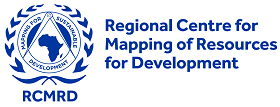Poaching and associated illegal wildlife trade (IWT) is devastating populations of iconic wildlife species such as rhinos and elephants, as well as a host of lesser known ones such as pangolins, some birds, reptiles, primates, medicinal plants and timber species. Trading wild species and their products internationally can pose serious threats. Poor governance and weak stewardship rights of local communities can undermine local support for conservation and render ineffective attempts to counter increasingly organized and well-armed poaching. Efforts to tighten enforcement can, in turn, drive prices up and heighten demand.

Kenya Wildlife Service (KWS) officer stands near a burning pile of 15 tonnes of seized elephant ivory at
Nairobi National Park on March 3, 2015. PHOTO | CARL DE SOUZA | AFP
On the other hand, sustainable, legal and equitable wildlife trade can be a powerful nature-based solution for meeting the twin challenges of enhancing rural livelihoods and conserving biological diversity. For communities empowered by effective and equitable governance systems, the benefits derived from trading wildlife products can catalyse community investments in nature conservation, law enforcement and stewardship of wildlife. Wildlife trade can enhance the way societies and communities value nature, tipping the balance in favour of protecting it and against converting it for ‘economically productive’ uses”.
Local Communities: First Line of Defence Against Illegal Wildlife Trade: Click here www.iucn.org/FLoD



